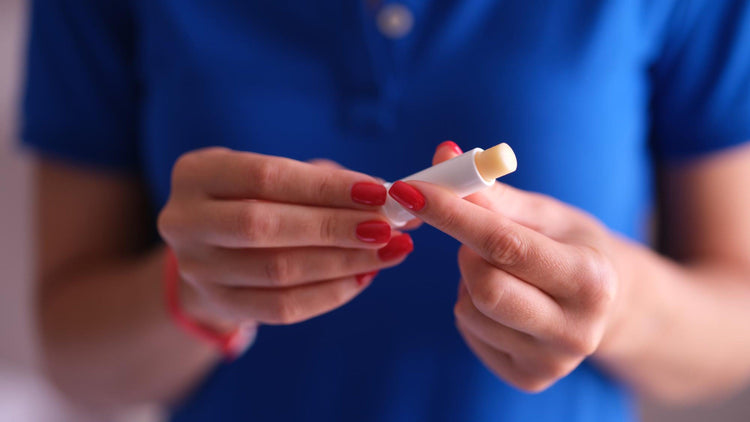Can You Get Pregnant Without Having Sex?

Related products
Pregnancy embodies a complex, transformative progression of phases within the human anatomy which culminate in the emergence of new life. Regarded scientifically as the span from fertilization to birth, pregnancy principally unfolds when a sperm cell successfully impregnates an egg through sexual activity.
However, there are certain perceived notions and myths regarding alternate methods through which pregnancy might occur without engaging in sexual activity. This subject raises considerable curiosity and intrigue due to its potential implications on social norms and religious beliefs associated with reproductive behaviors.
According to statistics by the Planned Parenthood Federation of America (PPFA), about 85 out of every 100 sexually active women who do not utilize contraceptives end up pregnant within one year - showcasing how high fertility rates typically align with conventional mating procedures involving heterosexual couples.
Nevertheless, Dr. Sherry Ross – Obstetrician-Gynecologist at Providence Saint John's Health Center– cautions against accepting such figures at face value when considering non-sexual routes towards conception; she opines: "Notions around alternative avenues for achieving pregnancies often stray into areas lacking adequate scientific evidence or comprehensive research."
Henceforth, it draws attention toward unpacking the truth behind these oft-speculated theories – making it imperative to delve deeper beneath surface-level assumptions while focusing on medical accuracy coupled with empirical data support.
Can You Get Pregnant Without Having Sex?

As unusual as it might sound to some, getting pregnant without engaging in sexual intercourse is feasible. As per the medical and scientific evidence available today, conception doesn't necessarily require traditional sex if one of the various assisted reproductive techniques is employed.
A few such methods include Intravenous fertility treatment (IVF), intrauterine insemination (IUI) or using donor sperm. These processes involve manipulating a woman's menstrual cycle with medications followed by extraction and fertilization of eggs outside her body before implanting them back into her uterus, bypassing the need for typical coitus that is most associated with pregnancy.
Furthermore, even scenarios where no professional assistance was involved have been documented – sometimes merely due to residual semen on fingers during masturbation could result in an accidental transference causing unwanted pregnancies.
Foreplay
Foreplay constitutes non-penetrative intimate acts undertaken before sexual intercourse. It often includes activities such as kissing, touching, and oral intimacy - traditionally aimed at enhancing arousal levels between partners.
Despite the rarity of such scenarios, pregnancy might occur from foreplay – but with some specific conditions in play.
One key factor involves the presence of viable sperm within the vicinity of the vagina during activity, even if usual intercourse doesn't take place. Sperm must subsequently travel into the uterus and fertilize an egg for conception.
The American Pregnancy Association states that while chances remain low - due to factors like diminished survival rate for exposed sperm outside the body & difficulty traversing the female reproductive tract without ejaculation occurring within it - there remains a degree of risk nonetheless. It's recommended by healthcare professionals that people engaging in intimate activities take precautions based on their reproductive intentions to prevent unintended pregnancies.
Insemination
Insemination refers to the deliberate introduction of sperm into a female's uterus or cervix to achieve pregnancy. Utilized frequently in assisted reproductive technology, it offers an effective solution for those facing infertility issues or seeking alternatives to traditional conception methods.
It triggers gestation by ensuring direct contact between healthy sperm and ovum - thereby bypassing obstacles preventing natural fertilization during intercourse. Centers for Disease Control & Prevention reported that this method involved 77% of all assisted reproductive technology cycles.
Exercising caution remains paramount throughout the insemination procedure due largely to potential complications such as multiple pregnancies and infection risks. Therefore, any woman contemplating undergoing these procedures must seek advice from healthcare professionals who are experienced in managing fertility treatments.
Strict adherence to guidelines provided by qualified experts greatly minimizes related adversities while maximizing successful outcomes, paving the way toward realizing dreams of parenthood beyond conventionally acknowledged boundaries.
Virgin pregnancy
Virgin pregnancy, also known as a parthenogenic or immaculate conception, refers to the idea of becoming pregnant without engaging in sexual intercourse. In human biology, it's scientifically non-viable due to our reproduction method, which necessitates both male and female gametes to fertilize successfully.
False claims stem largely from unfamiliarity with one's reproductive system or misunderstanding nuanced aspects such as close contact with nude genital rubbing leading toward accidental sperm transmission. Often misconstrued instances include perineal insemination, where sperm inadvertently enters the vagina during foreplay rather than penetration, hence emphasizing the importance of understanding general anatomy alongside prudent behavior when involved intimately with partners - even if refraining from conventional sex acts.
A study conducted in the US showed that among the studied women, only around 0.5% had virgin pregnancies.
How to Prevent Pregnancy
Preventing pregnancy effectively involves multiple approaches - central amongst these being contraceptive use, including intrauterine devices (IUDs) and hormonal birth control methods like the pill, patch or ring. Barrier mechanisms such as condoms serve dual functions by also protecting against sexually transmitted infections. Natural family planning strategies involve tracking menstrual cycles to abstain during fertile periods, while emergency contraception acts as a safeguard following unprotected sexual episodes. Lastly, permanent solutions encompass sterilization procedures like vasectomy for men or tubal ligation in women, which irreversibly prevent fertilization.
What To Do If You Are Pregnant?

Upon discovering a pregnancy, several steps can be undertaken to ease the journey towards parenthood and ensure optimal delivery experiences. The process begins by confirming the news through an accurate home kit or clinic test, followed by arranging an appointment with a health expert, preferably an obstetrician-gynecologist, to initiate prenatal care procedures. Necessary modifications in lifestyle, including adopting nutritious eating habits coupled with minimal intensity exercises, play crucial roles, while discontinuing intake of substances detrimental such as alcohol or tobacco, which could hinder healthy fetal growth, is equally important.
Accessing mental well-being support aids in navigating potential emotional upheaval brought upon by hormonal shifts during gestation periods. Lastly, contemplating birthing methods - natural versus C-section- and considering any probable complications alongside comfort factors assists in empowered decision-making when nearing labor time.
Frequently Asked Questions
Can you get pregnant if only the tip goes in?
Yes, pregnancy can occur with penetration of only the tip due to the potential presence of sperm in pre-ejaculate fluid. Although chances are lower compared to full ejaculation within the vagina, it's not impossible.
Can sperm go through 1 layer of clothing?
No, sperm are not capable of navigating through clothing. Even one layer can effectively block their passage, as the fabric's structure is intricate and complex for them to breach
What are the different ways to get pregnant?
Some of the different ways of getting pregnant include Natural Conception, Intrauterine Insemination (IUI), In-Vitro Fertilization (IVF), Intracytoplasmic Sperm Injection (ICSI), Donor Eggs/Sperms, Surrogacy.






















 Rated Excellent by 14,617+ Reviews
Rated Excellent by 14,617+ Reviews